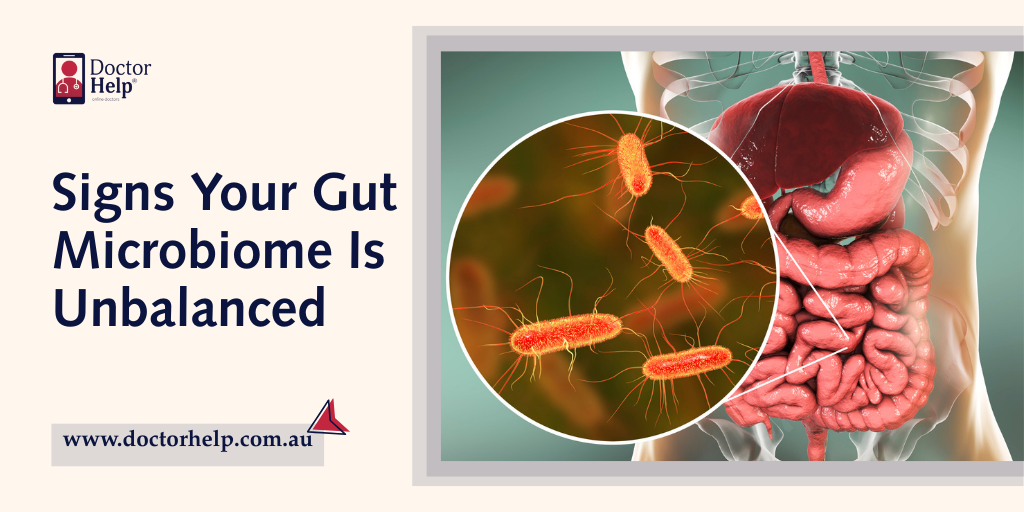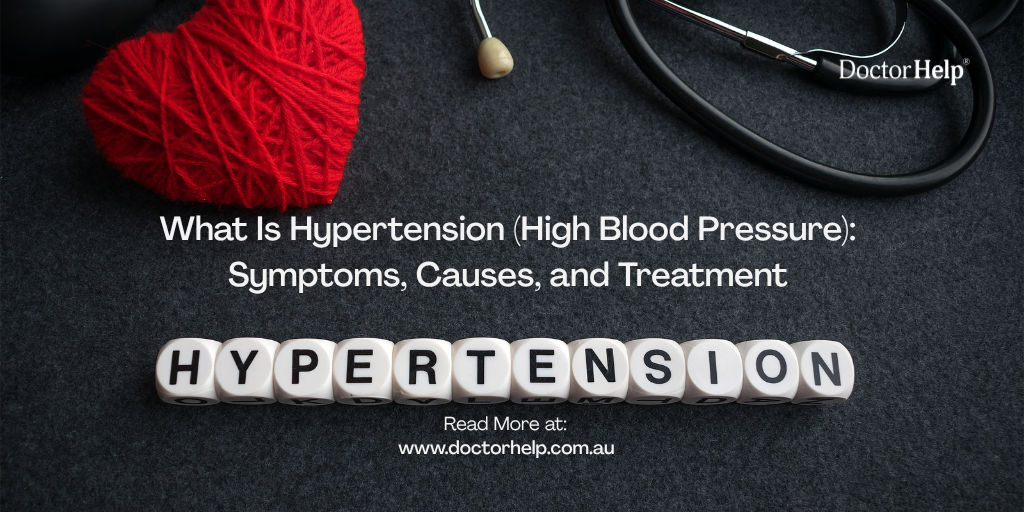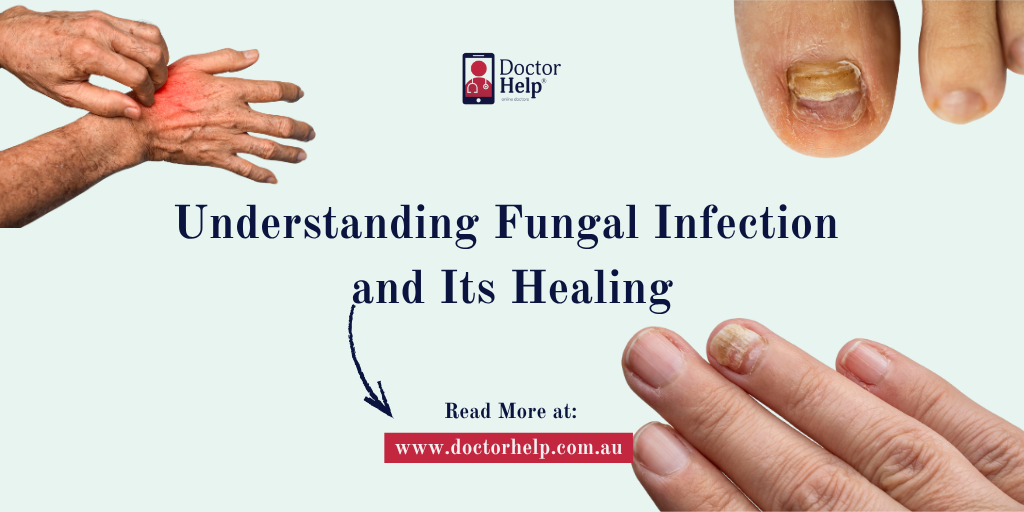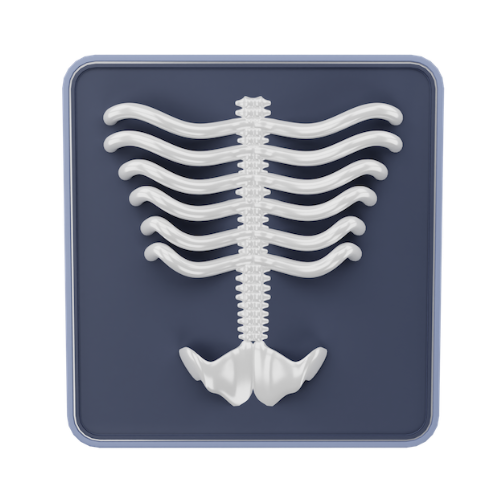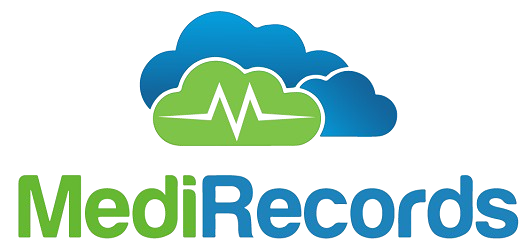Table of Contents
They say you should always trust your gut. Your gut is more than just a digestion machine. It is home to the gut microbiome, a busy ecosystem of trillions of bacteria, fungi and other microorganisms that silently influence your health on a daily basis.When this ecosystem thrives, you feel energised, focused, and well. However, when it goes out of control, the consequences trickle down to the very last limb.
If you have been feeling “not quite yourself” and cannot put your finger on why, your gut may already be waving red flags. Let us walk through the 10 signs of an unhealthy gut, what they mean for your wellbeing, and how you can begin to restore balance with the right care, from a healthy gut diet to probiotics for gut health.
1. Frequent Gut Bloating
It is not uncommon to have occasional bloating following a feast. However, when you notice that your stomach is always swollen despite having small meals, then it is possible that your microbiome is not digesting food. Some bacteria result in gas buildup, and excesses of the same strains can make you look and feel puffed up and heavy.
Bloating, constipation, diarrhea, and abdominal pain are the most frequently occurring digestive symptoms in adults. Some of these causes are harmless, but continuous gut bloating is worth considering because it can represent deeper gut health imbalances.
2. Irregular Bowel Habits
Your bowels are a direct reflection of your gut health. Constipation, diarrhoea, or swinging between the two can mean the microbiome is out of balance. A healthy gut has a normal bowel movement that is comfortable and does not strain or have urgency.
According to research, 1 in 2 Australians experience gut symptoms. They are prone to digestive upsets, which can be attributed in most cases to diet or microbial imbalance.
If irregularity becomes your “new normal,” it is worth exploring further with a doctor.
3. Food Intolerances
Once you have an unhealthy gut, previously enjoyable foods will leave you with cramps, gas, or discomfort. This can occur because a disrupted microbiome struggles to process certain compounds, leading to food intolerances.
Intolerances differ from allergies, but they can still disrupt your quality of life. Recognising this shift is an important sign your gut may be under strain.
4. Low Energy and Unexplained Fatigue
Dragging yourself through the day despite sleeping well? Gut imbalance may be behind your fatigue. Your microbiome helps break down food and absorb nutrients. If it falters, your energy supply suffers.
Research shows strong links between the gut and sleep regulation. In other words, an unhealthy gut may not just sap your energy. It can rob you of restorative sleep too.
5. Skin Flare-Ups
The gut and skin often move in step. Inflammation in the microbiome can also cause your skin to react with acne, eczema, and flare-ups, which cannot be calmed by creams alone.
Research points out that skin conditions are in many cases systemic, such as gut health. In case your skin troubles are coupled with digestive problems, there is a chance that your gut is a piece of the puzzle.
6. Frequent Illness or Weakened Immunity
A resilient immune system relies heavily on a thriving microbiome. Around 70% of immune cells are housed in the gut. If you are falling ill often or struggle to bounce back after infection, your gut may be short-staffed in its role as immune defender.
Healthdirect Australia underscores the gut’s role in immune regulation. Supporting gut health can often mean supporting your immune resilience.
7. Mood Changes and Brain Fog
Have you ever had “butterflies in your stomach” before a big event? That is the gut-brain axis in action. This two-way communication system means that an unbalanced gut can disrupt neurotransmitters like serotonin, which influences mood.
The Better Health Channel notes that gut health plays a role in mental wellbeing. If you find yourself irritable, anxious, or lost in a fog, your microbiome may be pulling the strings more than you realise.
8. Unintended Weight Changes
Weight gain or loss without lifestyle changes may also be a gut red flag. Certain bacteria influence how your body absorbs calories and stores fat. When these bacteria are out of proportion, your metabolism may shift in ways you cannot easily control.
If your weight changes suddenly and without explanation, it may be worth looking at gut health, alongside other possible medical causes. The Gastroenterological Society of Australia discusses the link between microbiome imbalance and metabolism.
9. Bad Breath
Persistent bad breath is not always a dental problem. Sometimes it is a digestive one. An unhealthy gut may produce compounds that rise up into the mouth, leaving you feeling self-conscious no matter how often you brush.
Bad breath can be a subtle but telling sign of microbial imbalance in the digestive system.
10. Trouble Concentrating
Your gut might be at play if you feel that your thoughts are hazy or your memory is not trustworthy. Brain fog has been associated with poor microbiome diversity and inflammation. When the gut is having a hard time, the brain tends to feel the burden of it.
Study into the gut-brain relationship implies that maintaining gut health can enhance concentration and brain clarity.
Read: Gut Health 101: How To Heal Your Gut Naturally
Why These Signs Cannot Be Ignored
The 10 signs of an unhealthy gut are not random inconveniences. They act as the wake-up call in your body and alert you that the gut microbiome is not in balance. Unattended, such signals may evolve into more intricate complications of irritable bowel syndrome, coeliac disease, or inflammatory bowel diseases.
The happy news is you can restore that balance with the right approach either with a healthy gut diet, carefully selected prebiotics, probiotics to help keep the gut healthy, or in other cases with the best gut health supplement. However, the initial one is the identification of the signs and their serious consideration.
Also read: Prebiotics Vs Probiotics: What’s The Difference
When to Seek Help
All of us have bloating, fatigue, or cloudiness of the brain every now and then. However, once these symptoms accumulate or continue it is time to consult the doctor. Telehealth doctors are able to chat about your symptoms, schedule tests when required, and direct you to safe and personalized recovery plans.
Certain conditions such as inflammatory bowel disease need timely and accurate treatment. Do not ignore your body signals as a mere stress or something you have eaten. When your gut talks, it is time to listen.
Final Thoughts
Your gut is a storyteller. It expresses its condition by symptoms such as gut bloating, constipation, lethargy, or mood changes. When the balance tips, these 10 signs of an unhealthy gut may begin to show and ignoring them can make the story much harder to rewrite.
Listening to your gut is listening to yourself. You provide your microbiome an opportunity to heal by listening, seeking help, and making conscious decisions. And that way you get the opportunity to really feel well again.
If these signs sound familiar, your gut may already be asking for care. Book an appointment with our doctors today and take the first step toward restoring balance
References:
- Hameed, M., Noor, F., Hussain, H., Khan, R. G., Rashid, S. K. H. U., Rashid, S. H. U., Atiq, A., Ali, H., Rida, S. E., & Abbasi, M. A. (2024). Gut-Brain Axis to investigate the effects of gut health on cognitive functioning in adults. Cureus.
https://doi.org/10.7759/cureus.64286 - Leaky Gut – GutHealthCo. (2024, July 25). GutHealthCo.
https://research.csiro.au/guthealthco/ - 18-00623_HB_GutHealth+WeightLossReportJan19. (n.d.).
https://www.csiro.au/~/media/News-releases/2018/gut-health-to-tackle-obesity/1800623HBGutHealthWeightLossReportJan19.html - Lin, Z., Jiang, T., Chen, M., Ji, X., & Wang, Y. (2024). Gut microbiota and sleep: Interaction mechanisms and therapeutic prospects. Open Life Sciences, 19(1).
https://doi.org/10.1515/biol-2022-0910 - De Pessemier, B., Grine, L., Debaere, M., Maes, A., Paetzold, B., & Callewaert, C. (2021). Gut–Skin Axis: Current Knowledge of the Interrelationship between Microbial Dysbiosis and Skin Conditions. Microorganisms, 9(2), 353.
https://doi.org/10.3390/microorganisms9020353 - Healthdirect Australia. (n.d.). Gut health. Prebiotics, Foods, Microbiome | Healthdirect.
https://www.healthdirect.gov.au/gut-health - Department of Health & Human Services. (n.d.). Gut health. Better Health Channel.
https://www.betterhealth.vic.gov.au/health/healthyliving/gut-health - Gastroenterology, Q. (2023, February 1). The doctor’s guide to best Gastrointestinal Health: Preventing common gut-related issues. Queensland Gastroenterology.
https://queenslandgastroenterology.com.au/news/gastrointestinal-health-preventing-common-gut-health-issues/

